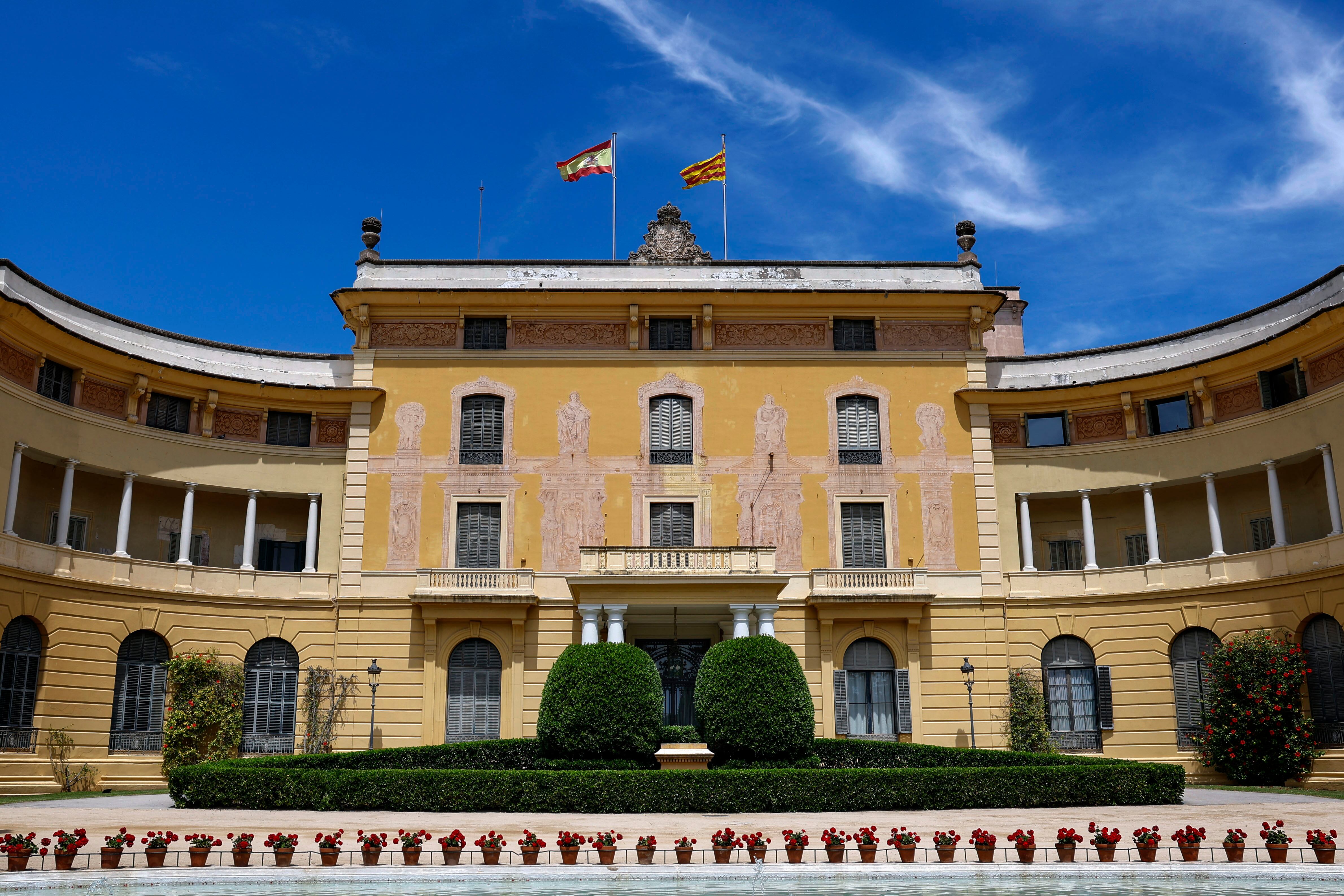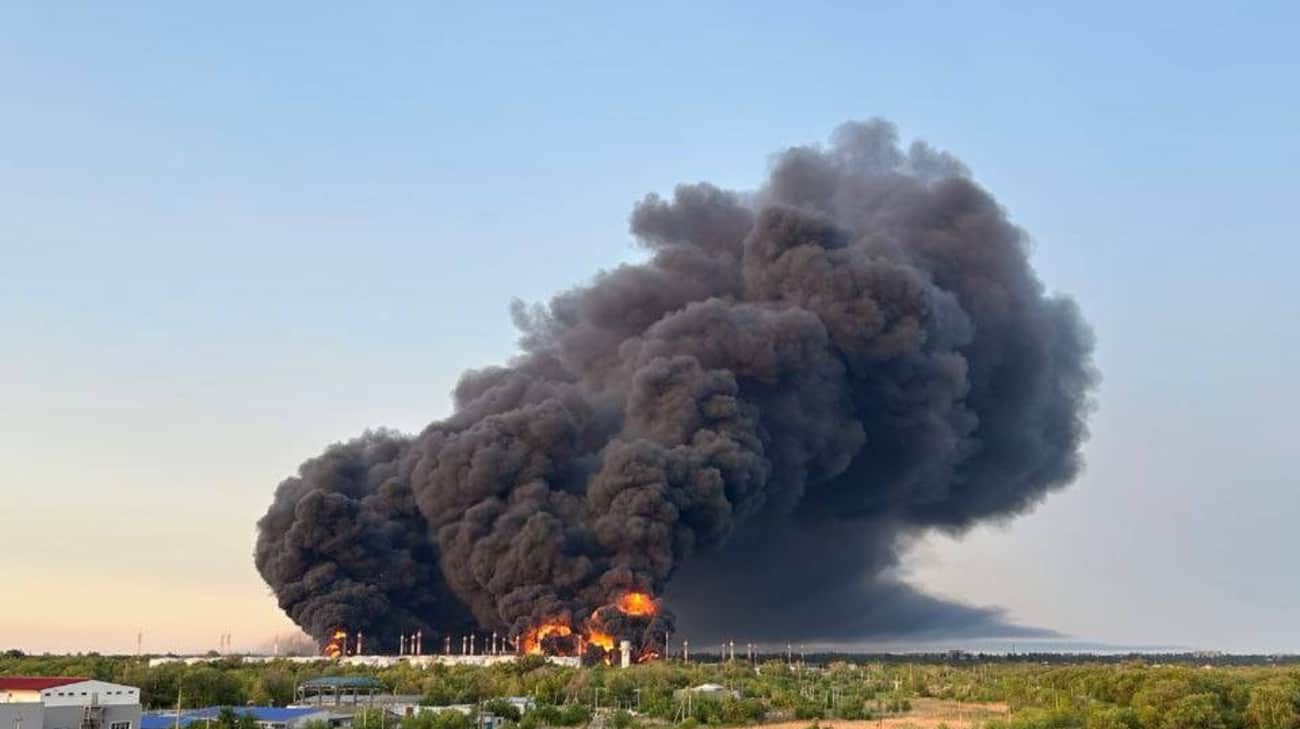“Doing the right for future generations means doing right for the ocean”

The investigator was in Portugal on the occasion of the 40th anniversary of the Luso-American Foundation for Development (FLAD) to participate in the “Breathing With The Ocean” conference that brought together experts to discuss the challenges and opportunities of marine resources. In an exclusive interview for Euronews and Luz at the Coches Museum in Lisbon, he spoke not only about the ocean as a connection between Portugal and the United States, but also about the importance of their conservation, leaving criticism of the US President Donald Trump, with a view to mining in deep sea, and appeals to European leaders to take the reins as ‘the largest guardians of the ocean territory’.
To what extent can the ocean play an important role in obtaining climate neutrality and in terms of species conservation?
The ocean is our biggest guarantee to deal with the climate crisis. It is closely linked to the weather. Protect us absorbing so much heat, storing so much carbon and is a large part of our solutions to deal with the climate. But we have disturbed the ocean to its limit. And now we need to reposition, respect and take care of our life guarantee. If we do, we have a chance to get out of this crisis. If not, the future will be black.
But what do you think can be done at this level?
We, as countries, as European Union, as a world, have to plan the ocean as part of our future. We have to govern in a much more responsible way, in a much more united way. And we need to take care of our guarantee of life, the ocean. If we do this, it takes serious dedication, serious resources, serious focus and serious leaders.
Portugal was a host of the United Nations Oceans Conference until recently and spent the testimony to France. Do you think that during this period, Portugal played an important role in protecting the oceans and policies that were driven at this time?
Portugal did a wonderful job when welcoming Unoc2. It was like a lighthouse lighting the light, showing us the way forward. It has given great energy and authority to French leaders now that they plan as to receive. And we are very confident that Unoc3 in June will mark the most significant political statement and one step forward in ocean care, management and protection.
In terms of what is being done in Europe and as a member of the EU mission to restore our oceans and waters, what did this mission bring again?
I think that when the Starfish report was published, it was an ambitious project. It was very ambitious, very focused on the future, and had scale and impulse. Now is the time, as we approach the European pact to the oceans and the ads made by President Ursula Von Der Leyen in Nice, to rediscover that visionary, ambitious, holistic view and an integrated approach of all governments to the ocean. We started, we have a long way to go to finish.
There is a goal to be fulfilled. What can be done within this deadline?
We have no days to lose. We have to increase the political ambition, focus and approaches of all governance in all countries of the European Union. We have to be the headlights for the world because we are the greatest guardians of the ocean territory of this planet. Therefore, it is up to the European Union to advance to this moment of leadership. It is up to each of the Member States to be part of this momentum, because all countries with freshwater and ocean are one, they are all connected. No matter if we are a thousand miles of the ocean, the ocean is part of our life. We all need to take a step forward. This is for our grandchildren. This is serious and this is now.
We hear about the abilities of the ocean economy. What is the potential of ocean renewable energies and what can we still unlock from this?
We have huge new opportunities associated with the ocean economy. And there is no change in our relationship with the ocean without changing the paradigm of our economy. We have to move from destructive bases of the extractive industry to others that are respectful, whether circular and renew the potentials of carbon storage in the ocean. Oceanic energy for Portugal, for Ireland, is a factor of change. A lever for our energy security, our carbon neutrality, and, in fact, for our ability not only to meet all our energy needs, but also to export clean and neutral energy in terms of carbon. These are the types of new innovative industries that are essential for a different new economic model. We need bioeconomics that are based on non -destructive biotechnology techniques for food production, for many different industries from ocean origin materials.
We have seen in recent years the increase in sea level, extreme weather events, and actually the climb of ocean temperatures that also cause extreme weather events. What can we still do to reverse this? Is outlining the perfect storm. Unless we are serious about reducing our carbonic impact, we risk living in increasingly worse conditions. And science does not lie, and science is accurate. We know enough to realize how to change it and what to reverse and what to ensure for our future. It’s time to start doing this and have political leadership, private sector leadership and citizens’ commitment to do it together.
How can this cooperation between Portugal and the United States be beneficial to the ocean issue?
I participated and had the great privilege of being involved in the establishment of the Galway Declaration, the Alliance for the Atlantic Ocean investigation in 2013 between the European Union, Canada and the US. Which grew in 2017 through the Belém statement to extend to South Africa and Brazil and is now the Polo in the Atlantic. These are examples of international scientific diplomacy. At times like this, we need diplomacy like never before. There are changes in change, and we need this transatlantic understanding and partnership. Partnerships, diplomacy, dialogue. This is our future.
Since we are talking about the United States, how do you see Trump’s executive order for deep sea mining?
The common goods of the deep sea belong to humanity. They are a generational gift for all future generations. We all need to respect science around any intrusion in the common funds of planet Earth. We need to develop the science that would keep and safeguard any extractive industries or any use of the common goods. I believe we should have a conservative approach to any extraction or any mining at sea. We should not do so until we know enough of science and its potential impact. Because this impact would not be isolated to a place. The ocean is one and it affects everyone on this planet.
Do you think this executive order is also a subversion of international law? I don’t believe we should do this. I do not believe that it is in the interest of humanity to do this at this time. Between the United Nations Convention on Sea Law and the International Authority of Marine Funds, there are ways to govern this issue and they must be respected.
What are the concrete environmental concerns about deep sea mining?
Disturbs the bottom of the ocean that stores carbon. So we are freeing carbon into the atmosphere of which nature has found a way to protect us. We are introducing sediment feathers and disturbing untouched ecosystems on which we do not know enough in the first instance. Biota, microbes in these sea funds perform an unknown scale of a function in making the entire system function. We need to understand this before allowing any extractive or harmful industry of any kind in these areas.
How will this executive order shake the geopolitical board game? Because when it comes to climate change, we also saw the US abandon the Paris agreement. Having worked, lived and had a unique opportunity in life in the 1980s to work as a scientist in the United States, I have a huge respect for the scale of science and scientific contributions. The US contributes 57% of the entire ocean observation capacity of the planet. But the sharing of this information was shut down by an executive order. This was unthinkable even a few months ago. Now we have to deal with this reality. This happened. It doesn’t matter if we like it or not. We must deal with and act. This is presented to Europe, as I say, the largest oceanic state on the planet, as a chance to step forward, live for our values, provide leadership, rescue this data in the name of all humanity because they serve all of us. And the United States scientific community has made a phenomenal contribution so far. It’s time for us to step forward.
Countries like China, for example, may feel tempted to do the same as the United States?
I believe that all countries have the ability and potential to take care of their future generations, to do the right for their future generations. And doing the right for future generations means doing right for the ocean in all its facets. And I believe in humanity, I believe we can find ways to do the right thing at the right time.








